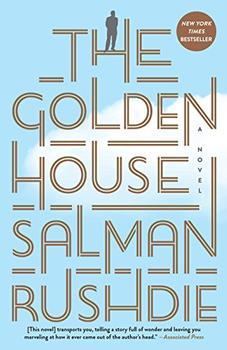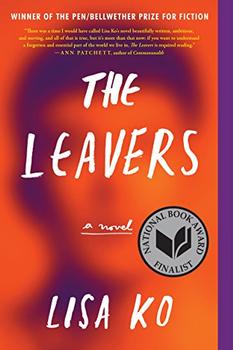Summary | Excerpt | Reviews | Beyond the book | Read-Alikes | Genres & Themes | Author Bio

A Novel
by Jonathan LethemIf it's true that all politics is local, then the American Communist Party might well have had its roots in Brooklyn's Sunnyside Gardens brought vividly to life in Jonathan Lethem's soaring novel, Dissident Gardens. The story visits not just the growth (and the eventual sputtering out) of communism in these environs, but also traces the arc of subsequent political activities leading all the way up to the recent Occupy movement.
The Sunnyside Gardens that Lethem draws so well bears a striking resemblance to the real-life Sunnyside Gardens in Queens which is on the National Register of Historic Places because it was one of the country's first planned urban garden centers. During the 1950s when the novel gets its start, the Brooklyn neighborhood is made up of Jewish and Irish immigrants. The novel's primary character, Rose Angrush Zimmer, is a quintessential matriarch ruling not just over her small family but the entire neighborhood, organizing her neighbors to watch for crime in their community, and being actively involved with the burgeoning Communist Party. Rose is such a large character - both literally and figuratively - that her presence smothers everyone around her, especially her daughter, Miriam. At the earliest opportunity, Miriam leaves to make her own way in bohemian Greenwich Village. She has her own idealistic take on world affairs that she acts on with her husband, Irish folk singer, Tommy Gogan. Their son (Rose's grandson), Sergius Gogan, eventually bears the brunt of their idealistic zeal. Mixed in with this varied assortment is Rose's black lover and his son Cicero Lookins who also can't escape Rose's looming shadow. The story unwinds and flows over many decades leading up to the present, following this essential cast of characters as they struggle with the weight of their beliefs, their history and the lives they envision for themselves.
Many of Jonathan Lethem's previous works are set in Brooklyn and here too the New York borough crackles and shines with vibrant energy. Rose Zimmer is modeled after Lethem's own grandmother. The story is "about the mysteries – to me, as a kid, growing up – of the kind of radical past of my grandmother's life," Lethem has said. "So it's about the American Communist Party and the people who were sort of entrenched in this disgraced tradition. By the time I came along, they weren't talking about it, but the silence was very fascinating to me."
While Dissident Garden's overt agenda might be to chronicle twentieth-century American politics, in Lethem's able hands, it also ends up being an expert analysis of family ties and how they are formed under the weight of all that idealistic fervor. Particularly touching is when Miriam's son, Sergius, looks for more information about his mother and grandmother. Like most of the other characters, Sergius is adrift in his own orbit, going through a quest for self-identity. To fully realize this task, he first needs to understand the women who shaped him: Would Rose have been a bully even without her politics? What exactly caused Miriam to rebel against her mother?
Each successive generation searches for its identity through a maze of definitions: New Yorker, leftist, Jewish, Communist. In this sense the novel is a search for self set against a panoramic backdrop. You get to see how the politics of any given time can shape one single character in subtle and indelible ways.
Because Dissident Gardens is epic in terms of its scope and executed vision, there are times when the story takes its own sweet time, caught in elaborate machinations that seem a little too constraining and tight. Lethem's sprawling canvases have always worked extremely well and they do so here too - only, in some places, one is left to wonder if he isn't a little too much in love with the sound of his own voice:
"There is no place anymore for the Last and yet if he is honest with himself he knows he is not the Last, he is only carrying a torch for the Last, a torch she hardly needs as she's been out there blazing all the time, waiting for the world to come to her door."
Torn between giving it a 4 or a 5, I chose a 5 but really, it's a 4.5.
Dissident Gardens eventually works because it illuminates the yawning gap between the noblest of intentions and their actual realization. Idealism and purity of principle are all well and good but when the tire hits the road what survives of these may not always be what one envisioned. "She recovered spite, she recovered disenchantment, she recovered paranoia," Lethem writes of Rose Zimmerman, towards the very end. "Except the milieu and personae that had once organized her reactions were mostly scattered to the winds now." For outrage to work, you need the right environment to fan the flames. As Dissident Gardens illustrates, without it, even the most roaring fire eventually dies out.
![]() This review was originally published in The BookBrowse Review in September 2013, and has been updated for the
June 2014 edition.
Click here to go to this issue.
This review was originally published in The BookBrowse Review in September 2013, and has been updated for the
June 2014 edition.
Click here to go to this issue.

If you liked Dissident Gardens, try these:

by Salman Rushdie
Published 2018
A modern American epic set against the panorama of contemporary politics and culture—a hurtling, page-turning mystery that is equal parts The Great Gatsby and The Bonfire of the Vanities

by Lisa Ko
Published 2018
Finalist for the 2017 National Book Award for Fiction.
Named a Best Book of 2017 by NPR, Entertainment Weekly, the Los Angeles Times, BuzzFeed, Bustle, and Electric Literature, Lisa Ko's debut novel is essential reading for our times.
When an old man dies, a library burns to the ground.
Click Here to find out who said this, as well as discovering other famous literary quotes!
Your guide toexceptional books
BookBrowse seeks out and recommends the best in contemporary fiction and nonfiction—books that not only engage and entertain but also deepen our understanding of ourselves and the world around us.